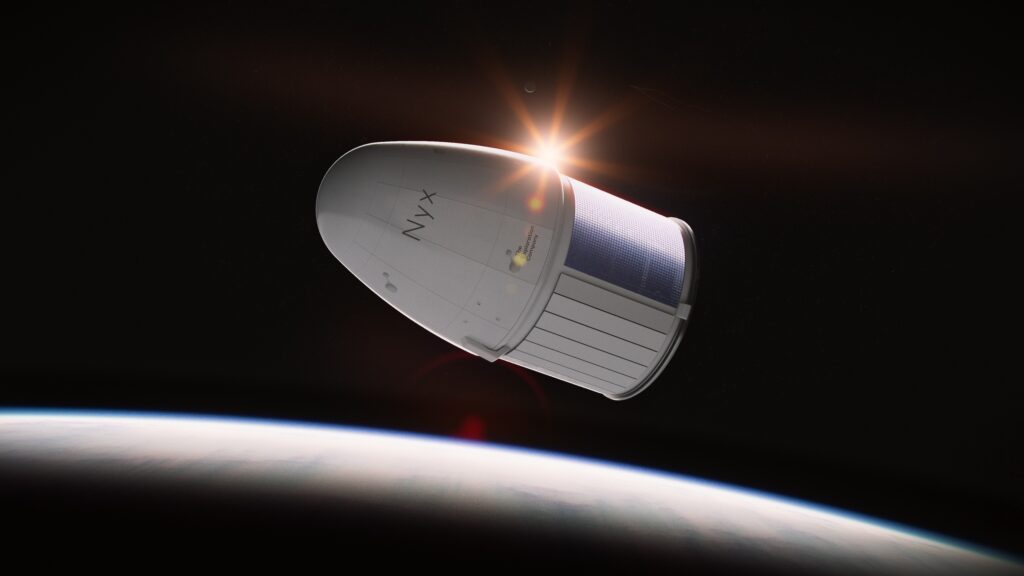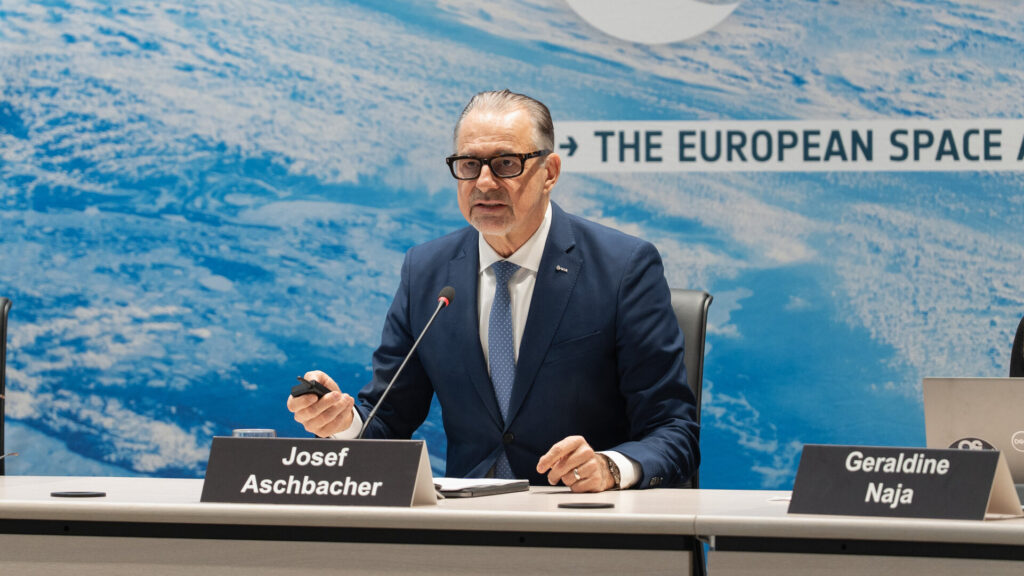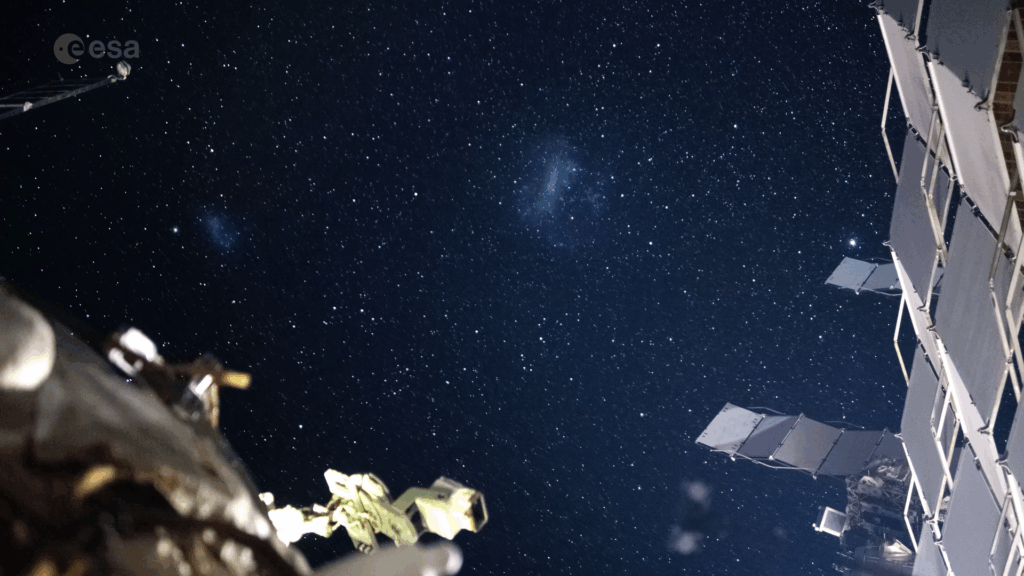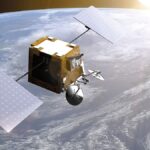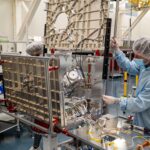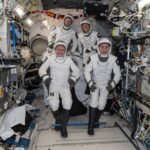Now Reading: Spain celebrates ESA heritage with substantial plans for the future
-
01
Spain celebrates ESA heritage with substantial plans for the future
Spain celebrates ESA heritage with substantial plans for the future
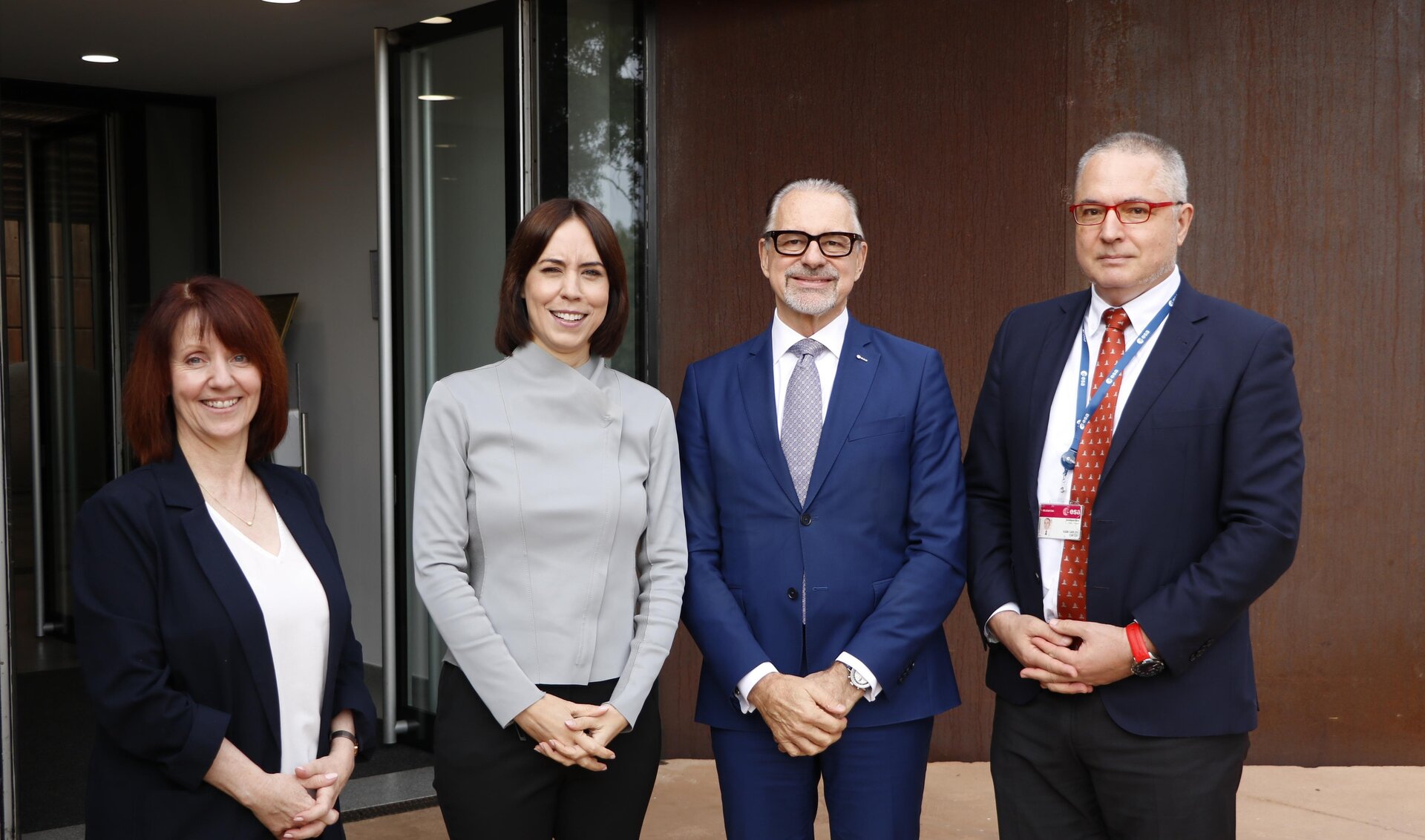

16/10/2025
413 views
12 likes
The European Space Agency’s presence in Spain is set to be strengthened, while more than a dozen contracts with Spanish industry were signed on Thursday.
The Spanish space agency, the Agencia Espacial Española (AEE), signed a new letter of intent with ESA and joined the zero-debris charter during a day of celebrations of ESA’s 50th anniversary at the European Space Astronomy Centre (ESAC) near Madrid. Noting that the country’s contribution to ESA has grown by 50% in the last seven years, Spain’s Minister of Science, Innovation and Universities, and President of the AEE, Diana Morant said: “[ESA] is one of the clearest expressions of the common European project, demonstrating that scientific cooperation is also a tool for peace, prosperity and social cohesion. Thanks to its work, space has become a resource at the service of all people.”
The new letter of intent will allow for potential areas of development at ESAC, as well as its reinforcement as a leading scientific reference centre. Data from space missions that is accessible through ESAC supports thousands of researchers and hundreds of scientific papers every year.
ESA Director General Josef Aschbacher said: “Spain is an extremely important and active Member State of ESA; they have shown excellent leadership in the Atlantic Constellation and they are a driving force of European Resilience from Space. ESAC is a focal point and an enabler of Spanish activities in ESA, and with this letter of intent, we investigate potential areas of further development at ESAC, based on evolving strategic priorities and emerging opportunities.”
In a similar vein, looking to the future of space, the AEE signed the Zero Debris Charter, a community initiative to advance space safety. The Spanish space agency joins more than 180 other signatories, including 20 national governments.
To work on reducing the debris already in low Earth orbit, ESA and the AEE confirmed their intent to collaborate on the CApTure Payload Bay (CAT) in-orbit demonstration. The proposed mission will be considered by ESA Member States as part of the Ministerial Council in November. In addition, Spain has increased its support for the Spanish Space Surveillance and Tracking (S3T) project that implements space debris detection and space surveillance operations with ESA’s support.
The continuing commitment to protecting Earth with data from space was underlined with three contract signings.
A consolidation study for the SIRIUS mission has been officially contracted with Thales Alenia Space España. The mission is one of the Scout missions proposed in the framework of the FutureEO programme, missions that are designed to deliver innovative science and technology with a short and low-cost development cycle. The proposed SIRIUS mission is designed to use infrared imaging to help monitor urban heat islands and assess health risks related to heat.
A second contract was signed with Airbus defence and Space Spain for the radiometer for the Sentinel-3 Next Generation Topography mission that has reached the final step before manufacture. The first generation of Sentinel-3 spacecraft joined the Copernicus fleet almost ten years ago and provides systematic measurements of Earth’s oceans, land, ice and atmosphere to monitor and understand large-scale global dynamics. Essential information from the current satellites is delivered in near-real time for ocean and weather forecasting. The next generation of Sentinel missions will ensure a continuous record of observations, while increasing the quality of products.
A further contract was signed with Open Cosmos for the implementation phase of the Spanish component of the Atlantic Constellation. The consortium led by Open Cosmos will be responsible for designing, integrating and manufacturing an initial batch of satellites. The Atlantic Constellation is a collaboration with Portugal that will comprise 16 satellites, of which Spain will contribute half.
ESA Director for Earth Observation Simonetta Cheli said: “The upcoming ESA Ministerial is key for Spain in terms of sustaining progress of their space initiatives. The three contracts signed today show the breadth of Spanish involvement in the ESA Earth Observation Programmes , such as the Copernicus Space Component and in cutting edge missions enabled by the FutureEO Programme, as well as in supporting national constellations, such as ESCA – the Spanish component of the Atlantic Constellation – which have a strong potential to play a role in ERS-EO, European Resilience from Space Earth Observation.”
In a further sign of ESA’s commitment to innovation and competitiveness and Spain’s strong response, nine contracts were signed under ESA’s Navigation Innovation and Support Programme (NAVISP). The activities have a total value of over €10 million, with ESA co-funding half of the budget and industries contributing the remaining amount. The projects were selected from a pool of proposals following a call by ESA and the AEE earlier this year.
Stay Informed With the Latest & Most Important News
Previous Post
Next Post
-
 01From Polymerization-Enabled Folding and Assembly to Chemical Evolution: Key Processes for Emergence of Functional Polymers in the Origin of Life
01From Polymerization-Enabled Folding and Assembly to Chemical Evolution: Key Processes for Emergence of Functional Polymers in the Origin of Life -
 02Two Black Holes Observed Circling Each Other for the First Time
02Two Black Holes Observed Circling Each Other for the First Time -
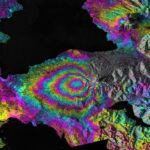 03How New NASA, India Earth Satellite NISAR Will See Earth
03How New NASA, India Earth Satellite NISAR Will See Earth -
 04Thermodynamic Constraints On The Citric Acid Cycle And Related Reactions In Ocean World Interiors
04Thermodynamic Constraints On The Citric Acid Cycle And Related Reactions In Ocean World Interiors -
 05Φsat-2 begins science phase for AI Earth images
05Φsat-2 begins science phase for AI Earth images -
 06Hurricane forecasters are losing 3 key satellites ahead of peak storm season − a meteorologist explains why it matters
06Hurricane forecasters are losing 3 key satellites ahead of peak storm season − a meteorologist explains why it matters -
 07Binary star systems are complex astronomical objects − a new AI approach could pin down their properties quickly
07Binary star systems are complex astronomical objects − a new AI approach could pin down their properties quickly












